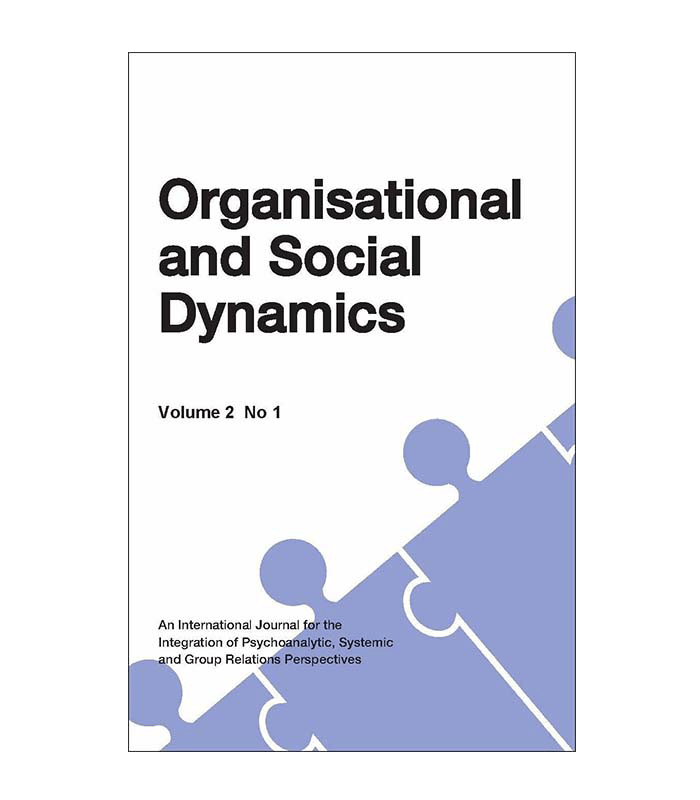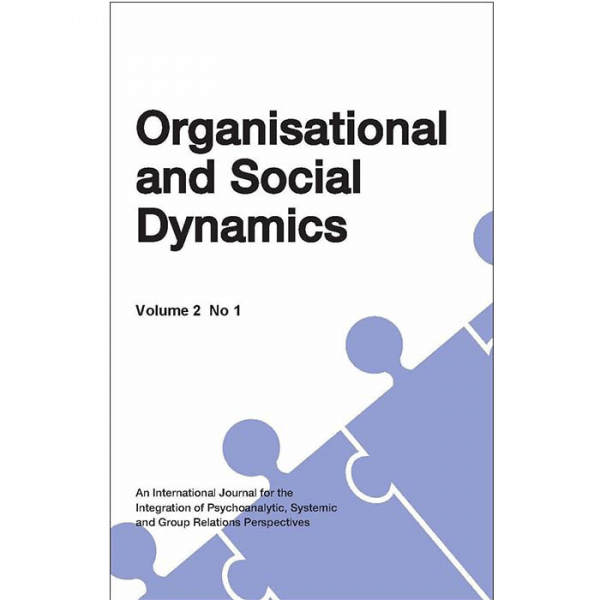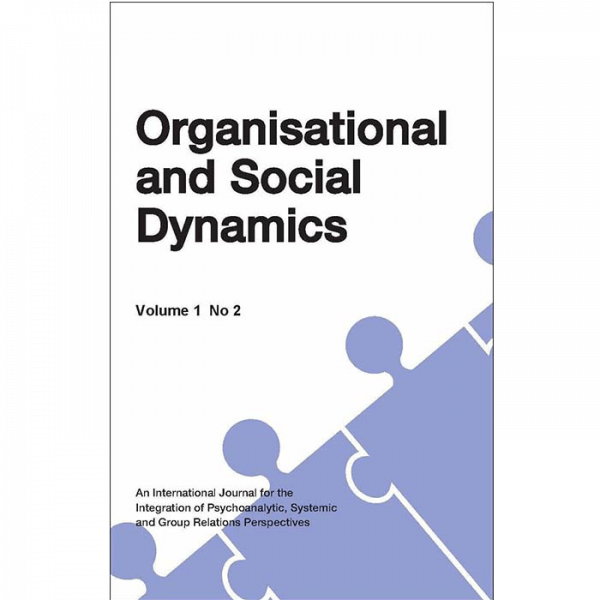The Journal welcomes manuscripts from contributors who are aware of their own influences and assumptions, the impact of countertransference upon their work, whatever form it takes, and the ability to connect the internal world of individuals and groups with societal and global processes.
Procedure for submissions: All contributions should be submitted via PubKit where you can set up an author account and submit your manuscript according to the instructions given.
Journal policy prohibits an author from submitting the same paper for consideration by another journal and does not allow publication of a paper that has been published in whole or in part by another journal. A statement transferring copyright from the authors to Organisational and Social Dynamics will be required before the manuscript can be accepted for publication.
1. Guidelines
Language: Papers are accepted in English only. British English spelling and punctuation is preferred. Non-discriminatory language is mandatory. Sexist or racist terms must not be used.
Referencing: All papers should follow the referencing guidelines of Phoenix Publishing House available here.
Abstracts: Structured abstracts of no more than 200 words are required for all papers submitted. Authors must supply five keywords.
Headings: Section headings should be concise.
Word count: typical contributions are 3,500 to 8,000 words, (14–32 double spaced pages including references). Papers that greatly exceed this will be critically reviewed with respect to length and may be published where inclusion of data (e.g. excerpts from interviews) warrant it. Short papers of 1,500–2,500 words, including references are also invited. Authors should include a word count with their paper. The word count (which includes all text including the abstract, article, notes, tables, figures, etc.) should appear at the end of the paper.
Font: All papers must be typed in 12-point font in Arial and double-spaced throughout including the reference section, with wide (3 cm) margins. All pages must be numbered.
2. Infographics
You are welcome to include graphs, tables, and diagrams in your submission, but the following must be observed when supplying information:
- All graphics must be supplied in their original format, either as digital artwork or statistical data.
- Any graphics copied from the internet and cited from other publications are not accept able on their own.
- Graphics files must be supplied separately to text. Please do not embed graphics in the text file.
- Figures should be numbered in the order in which they appear in the paper (e.g. Figure 1, Figure 2). In multi-part figures, each part should be clearly labelled (e.g. Figure 1(a), Figure 1(b))
- Each figure should include a title caption and full source e.g. Figure 1 The incidence of mental health issues in the UK adult population, World Health Organization, Report on World Mental Health Issues, 2013
- The filename for the graphic should be descriptive of the graphic, e.g. Figure1, Figure2a.
- Avoid the use of colour and tints for purely aesthetic reasons.
3. Reproduction of copyright material
As an author, you are required to secure written permission for the use of all previously published material that is in copyright as follows. If you want to reproduce any figure or table, (including where you have created a new figure or table which derives substantially from a copyrighted source). If you use more than one line of a short poem or a few lines from a long one or any words or music of a copyrighted song. If you quote more than 500 (cumulative) words from the same book or 300 cumulative words from the same article of paper, or use a sentence or more as an epigraph (i.e. where there is no discussion of the author’s work). Where no permission is required, the original work must be clearly defined and attributed to the original source. This applies to direct reproduction as well as “derivative reproduction” (where you have created a new figure or table which derives substantially from a copyrighted source).
4. Copyright and authors’ rights
It is a condition of publication that authors assign copyright or license the publication rights in their papers, including abstracts, to Organisational and Social Dynamics. This enables us to ensure full copyright protection and to disseminate the paper, and of course the journal, to the widest possible readership in print and electronic formats as appropriate. Authors are themselves responsible for obtaining permission to reproduce copyright material from other sources.
5. Proofs
Manuscripts will be copy-edited for journal house style. Authors will receive page proofs for checking. At this point, no substantial changes can be made to the paper. It is essential that proofs are checked and returned within 48 hours.
6. Checklist
Before submitting your manuscript to the journal, please view the Final checklist for Phoenix journal articles here to ensure your submission follows house style.
7. Disclaimer
Organisational and Social Dynamics and the editors make every effort to ensure the accuracy of all the information (the “Content”) contained in its publications. However, any views expressed in this publication are the views of the authors and are not the views of the editors or of Organisational and Social Dynamics. Responsibility for confidential material and consent obtained to use in publications is that of the authors.




